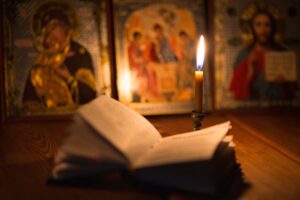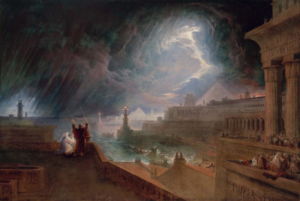People who are afraid of Friday the 13th suffer from paraskavedekatriaphobia. This rather lengthy word is comprised of three Greek words: paraskave – meaning Friday, dekatria – the number thirteen and, phobia – meaning fear.
But why do people make such a fuss whenever the thirteenth day of a month coincides with Friday?
Probably because of the superstition which surrounds the number itself. Just like the ancient Romans who feared of the “Ides” (or 15th) of each month (something immortalized by the oracle’s line, “Beware the Ides of March,” in William Shakespeare’s classic play, Julius Caesar), modern man, despite his many advances, still retains something of a superstitious nature. Put quite simply, we apparently fear easily.
The word superstition comes from the Latin word superstitio which means “excessive fear.” The definition derives from super (meaning “over”) and stare (meaning “to stand,” as in a length of time). So the basic meaning is to “stand long over something.” In other words, superstition means to dwell on a situation – especially tragic ones – and try to devise a reason as to why it occurred.
Superstition usually arises when people fail to accept the fact that bad things simply happen. Such persons begin to convince themselves that there had to be a cause and effect for what occurred. This is just another means by which the Devil leads mankind astray and/or is able to discredit God’s power. Superstitions obviously stem from man’s own weakness and lack of faith.
The most apt saying regarding the subject comes from Edmund Burke who said, “Superstition is the religion of feeble minds.” St. Paul himself wrote on this subject back in the earliest days of the Church: “Let no one deceive you with empty words…do not associate with them, for once you were in darkness, but now you are light in the Lord; walk as children of light. Take no part in the unfruitful works of darkness, but instead expose them” (Ephesians 5:6-11).
In a nutshell, superstition is caused and perpetuated through fear and ignorance.






